10 Most Popular Big Data Platform Tools Analytics for 2024 – In today’s digital age, businesses and organizations are generating vast amounts of data at an unprecedented rate. Traditional data processing tools and techniques are no longer sufficient to handle the scale and complexity of these data sets. This is where Big Data platform tools come into play.
Big Data platforms provide the necessary infrastructure and tools to capture, store, process, analyze, and derive valuable insights from massive data sets. In this article, we will explore the world of Big Data platform tools, their significance, and their impact on data analytics.
Daftar Isi :
What are Big Data Platform Tools?
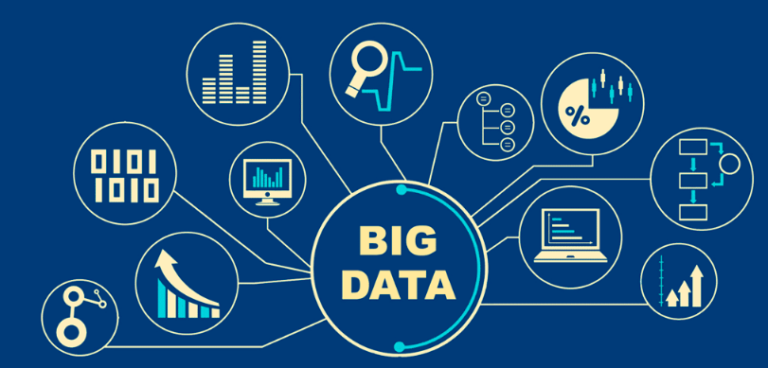
Big Data platform tools are software frameworks and technologies designed to handle and process large volumes of structured, semi-structured, and unstructured data. These tools enable organizations to collect, store, process, and analyze data from various sources, such as social media, sensors, websites, and enterprise systems. Big Data platforms provide a scalable and distributed infrastructure to handle the velocity, variety, and volume of Big Data.
Key Components of Big Data Platform Tools
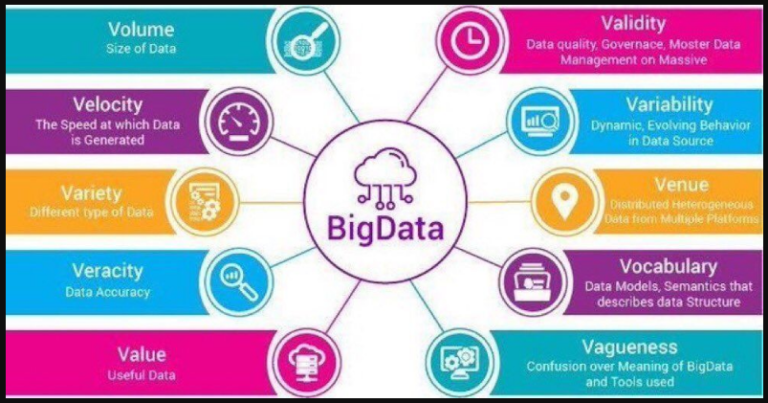
a) Distributed File Systems
Big Data platforms rely on distributed file systems like Hadoop Distributed File System (HDFS) and Apache Hadoop Compatible File System (HCFS) to store and manage large data sets across multiple nodes in a cluster. These file systems provide fault-tolerance and high availability, ensuring data reliability and durability.
b) Cluster Computing
Big Data platforms utilize distributed computing frameworks like Apache Spark, Apache Flink, and Apache Hadoop MapReduce for parallel processing of data across multiple nodes. These frameworks enable efficient data processing, including data transformation, filtering, aggregation, and machine learning algorithms.
c) Data Ingestion and Integration
Big Data platforms offer tools to ingest and integrate data from various sources. Technologies like Apache Kafka, Apache Flume, and Apache Nifi facilitate data ingestion by capturing data streams and efficiently transferring them to the Big Data platform.
d) Data Storage
Big Data platforms provide scalable and distributed storage systems, such as Apache HBase, Apache Cassandra, and Amazon S3, to store structured and unstructured data. These storage systems ensure high availability, fault tolerance, and data replication across multiple nodes.
e) Data Processing and Analytics
Big Data platforms offer a wide range of processing and analytics tools. Apache Hive and Apache Pig provide SQL-like query languages for data processing, while Apache Spark SQL enables interactive querying and data analysis. Additionally, machine learning frameworks like Apache Mahout, TensorFlow, and Apache Spark MLlib support advanced analytics and predictive modeling on Big Data.
Advantages of Big Data Platform Tools Source Stack
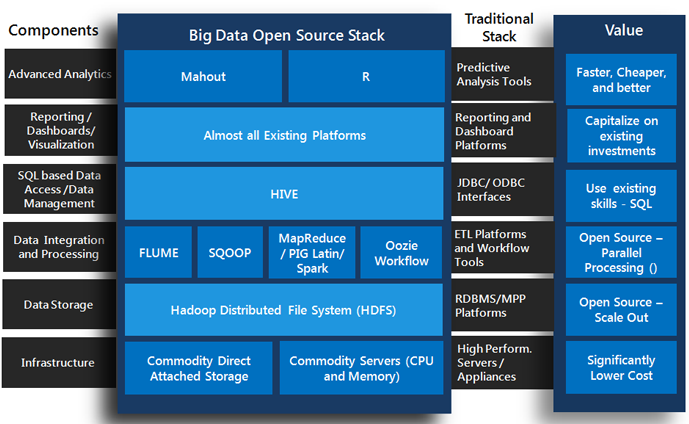
Big Data platform tools offer numerous advantages for organizations in handling and analyzing large volumes of data. Here are some key advantages:
Scalability
Big Data platform tools provide scalable infrastructure that can handle the ever-increasing volumes of data. These tools enable organizations to seamlessly scale their data storage and processing capabilities by adding more nodes to the cluster. This scalability ensures that the system can handle growing data volumes without sacrificing performance or incurring significant infrastructure costs.
Cost-effectiveness
Big Data platform tools leverage open-source technologies and commodity hardware, which significantly reduces the cost of infrastructure compared to traditional data processing solutions. These tools enable organizations to store and process large data sets using cost-efficient hardware and software resources.
Real-time Insights
Big Data platform tools allow organizations to process and analyze data in real time. They enable the ingestion and processing of streaming data, such as social media feeds, sensor data, and transaction logs, as it arrives. This capability provides organizations with up-to-date insights and the ability to make timely decisions based on the most recent data.
Data Integration
Big Data platform tools facilitate the integration of data from various sources. Organizations can ingest and process structured, semi-structured, and unstructured data from databases, file systems, social media platforms, and other sources. By integrating data from multiple sources, organizations can gain a comprehensive view of their data and derive valuable insights by analyzing data in a unified manner.
Advanced Analytics
Big Data platform tools offer powerful analytics capabilities, including machine learning, natural language processing, and predictive modeling. These tools enable organizations to uncover hidden patterns, trends, and correlations in their data. By applying advanced analytics techniques, organizations can derive valuable insights and make data-driven decisions to improve their operations, optimize processes, and gain a competitive advantage.
Agility and Flexibility
Big Data platform tools provide organizations with the agility and flexibility to experiment with different data models, algorithms, and analysis techniques. These tools support iterative development and rapid prototyping, allowing organizations to quickly test hypotheses and refine their analytical models. The flexibility of Big Data platform tools enables organizations to adapt and evolve their data analytics processes as their business needs and data requirements change.
Improved Decision-making
Big Data platform tools enable organizations to make data-driven decisions based on comprehensive and timely insights. By analyzing large and diverse data sets, organizations can identify trends, patterns, and anomalies that were previously hidden. This enables them to make informed decisions, optimize operations, improve customer experiences, and identify new business opportunities.
Competitive Advantage
By harnessing the power of Big Data platform tools, organizations can gain a competitive advantage in their respective industries. The ability to process and analyze vast amounts of data enables organizations to uncover valuable insights, innovate faster, and make informed decisions ahead of their competitors. Big Data platform tools empower organizations to leverage their data as a strategic asset and stay ahead in a data-driven world.
Read More : Top 10 CRM Software Marketing Terbaik Paling Inovatif
Use Cases of Big Data Platform Tools
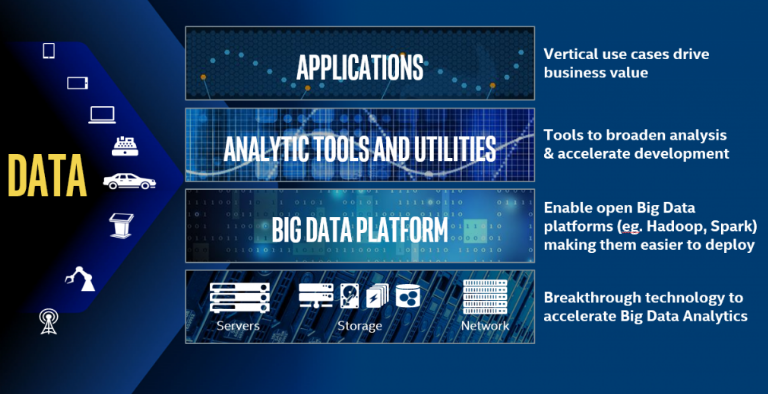
Big Data platform tools have revolutionized data analytics and are widely used across various industries. Here are some prominent use cases that highlight the diverse applications and benefits of these tools:
Retail and E-commerce
Big Data platform tools enable retailers to analyze customer data, including purchase history, browsing behavior, and social media interactions, to gain insights into customer preferences and behavior. This data can be used for personalized marketing, targeted promotions, inventory optimization, and demand forecasting. Retailers can also leverage sentiment analysis on social media data to understand customer sentiment and improve customer satisfaction.
Healthcare and Life Sciences
Big Data platform tools play a crucial role in healthcare and life sciences research. By analyzing large volumes of patient data, including electronic health records, medical images, and genomic data, researchers can identify patterns and correlations for disease diagnosis, treatment optimization, and drug discovery. Big Data analytics also enables real-time monitoring of patient data, facilitating early detection of anomalies and proactive intervention.
Financial Services
Big Data platform tools have transformed the financial industry by enabling advanced risk modeling, fraud detection, and personalized customer experiences. These tools analyze vast amounts of financial data, including transaction records, market data, and customer profiles, to identify potential risks, detect fraudulent activities, and provide personalized financial recommendations. Additionally, Big Data analytics aids in algorithmic trading, portfolio optimization, and credit risk assessment.
Manufacturing and Supply Chain
Big Data platform tools enhance manufacturing and supply chain operations by analyzing sensor data, machine logs, and production records. Manufacturers can optimize production processes, predict equipment failures, and minimize downtime through predictive maintenance. Supply chain analytics enables improved demand forecasting, inventory management, and logistics optimization, leading to cost reduction and improved efficiency.
Energy and Utilities
Big Data platform tools help energy and utility companies optimize their operations and improve energy efficiency. By analyzing data from smart meters, grid sensors, and weather forecasts, these tools enable demand forecasting, load balancing, and predictive maintenance of energy infrastructure. Big Data analytics also supports renewable energy optimization, predictive maintenance of wind turbines, and identification of energy consumption patterns for targeted energy conservation initiatives.
Telecommunications
Big Data platform tools play a vital role in telecommunications companies by analyzing vast amounts of network data, customer behavior data, and call records. These tools enable network optimization, predictive maintenance of network infrastructure, and real-time network monitoring for improved performance and quality of service. Big Data analytics also facilitates customer segmentation, churn prediction, and personalized marketing campaigns.
Government and Public Sector
Big Data platform tools assist government agencies in making data-driven decisions and improving public services. These tools analyze diverse data sources, including social media data, public transportation data, and citizen feedback, to identify patterns, sentiment, and trends. Big Data analytics supports urban planning, traffic management, public safety optimization, and policy-making based on accurate and timely insights.
Media and Entertainment
Big Data platform tools enable media and entertainment companies to analyze user behavior, social media data, and content consumption patterns. These tools help personalize content recommendations, optimize advertising campaigns, and identify audience preferences. Big Data analytics also supports content sentiment analysis, trend prediction, and audience engagement measurement for informed content creation and distribution strategies.
These are just a few examples of the diverse applications of Big Data tools across industries. As organizations continue to generate massive amounts of data, the use of Big Data tools will become even more critical in unlocking valuable insights, improving decision-making, and driving innovation in the digital era.
Top Best Big Data Platform Tools & Analytics for 2023
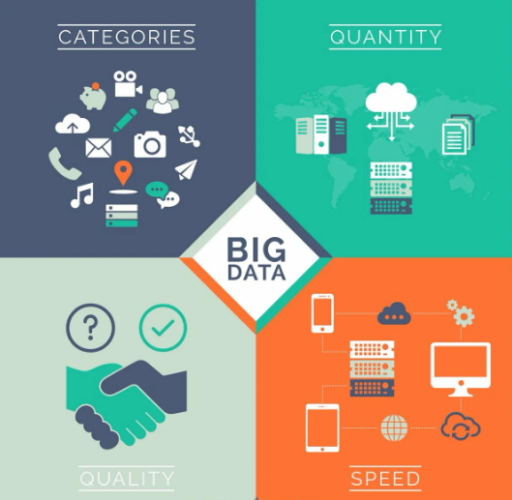
When it comes to Big Data tools, several options are available in the market, each with its unique features and strengths. Here are some of the top Big Data tools widely recognized for their capabilities and popularity:
1. Apache Hadoop
Apache Hadoop is one of the most popular open-source Big Data platform tools. It comprises the Hadoop Distributed File System (HDFS) for distributed storage and the MapReduce framework for distributed processing. Hadoop provides scalability, fault tolerance, and the ability to process large data sets across clusters of commodity hardware. It also offers a rich ecosystem of related tools like Hive, Pig, and Spark for data querying, processing, and analytics.
2. Apache Spark
Apache Spark is an open-source distributed computing system that provides fast and flexible data processing capabilities. Spark supports in-memory processing and offers APIs for distributed SQL, streaming data processing, machine learning, and graph processing. It provides high-level abstractions like DataFrames and Datasets, making it user-friendly for developers. Spark is known for its speed and can handle both batch and real-time data processing workloads.
3. Apache Cassandra
Apache Cassandra is a highly scalable and distributed NoSQL database designed to handle massive amounts of data across multiple nodes. It offers high availability, fault tolerance, and linear scalability, making it ideal for storing and processing large-scale data sets. Cassandra’s decentralized architecture and support for replication enable high write and read throughput, making it suitable for use cases that require low-latency data access.
4. Amazon Web Services (AWS) Elastic MapReduce (EMR)
AWS EMR is a cloud-based Big Data platform that provides managed Hadoop and Spark clusters on Amazon Web Services. It simplifies the deployment and management of Big Data infrastructure and offers seamless integration with other AWS services. EMR allows users to process large data sets using Hadoop, Spark, Hive, and other tools without the need for upfront hardware provisioning and management.
5. Google Cloud Dataproc
Google Cloud Dataproc is a fully managed Big Data platform that leverages the power of open-source tools like Hadoop, Spark, and Hive on the Google Cloud Platform. It offers easy cluster management, automatic scaling, and integration with other Google Cloud services. Dataproc allows users to process and analyze large data sets using familiar tools while benefiting from the scalability and flexibility of the cloud.
6. Cloudera
Cloudera is a comprehensive Big Data platform that provides enterprise-ready solutions for data management, analytics, and machine learning. It integrates Apache Hadoop, Spark, and other open-source tools into a unified platform, providing data ingestion, storage, processing, and analytics capabilities. Cloudera offers additional features like data governance, security, and real-time streaming analytics, making it suitable for enterprise-grade Big Data deployments.
7. Microsoft Azure HDInsight
Azure HDInsight is a cloud-based Big Data platform provided by Microsoft Azure. It offers managed clusters for Hadoop, Spark, Hive, and other popular Big Data tools. HDInsight integrates with other Azure services and provides enterprise-grade security, scalability, and performance. It supports hybrid cloud deployments, allowing organizations to seamlessly integrate their on-premises data with cloud-based analytics.
8. IBM InfoSphere BigInsights
IBM InfoSphere BigInsights is an enterprise-ready Big Data platform that provides comprehensive data management and analytics capabilities. It leverages open-source technologies like Hadoop, Spark, and Big SQL to process and analyze large data sets. BigInsights offers advanced analytics, data visualization, and machine learning capabilities, enabling organizations to derive meaningful insights from their data.
9. Apache Kafka
Apache Kafka is a distributed streaming platform that enables the building of real-time streaming data pipelines and applications. It provides high-throughput, fault-tolerant, and scalable messaging capabilities. Kafka is based on a publish-subscribe model, where producers publish data to topics, and consumers subscribe to those topics to process the data. It has become the de facto standard for building real-time data streaming architectures and is widely used for log aggregation, event sourcing, and data integration.
10. Apache Flink
Apache Flink is a powerful stream processing framework that supports both batch and stream processing. It offers low-latency and high-throughput data processing capabilities with exactly-once semantics. Flink’s event-driven architecture allows for real-time data processing and analytics, making it suitable for use cases such as fraud detection, real-time recommendations, and IoT data analytics. Flink integrates well with other Big Data ecosystem tools, including Hadoop and Kafka.
FAQS
Certainly! Here are some frequently asked questions (FAQs) about Big Data platform tools:
- What is a Big Data platform? A Big Data platform refers to a set of tools, technologies, and infrastructure that enable organizations to capture, store, process, and analyze large volumes of data. These platforms provide the necessary resources and capabilities to handle the velocity, variety, and volume of Big Data, enabling organizations to derive valuable insights and make data-driven decisions.
- What are the key components of a Big Data platform? A Big Data platform typically consists of components such as distributed file systems (e.g., HDFS), cluster computing frameworks (e.g., Apache Spark), data ingestion and integration tools (e.g., Apache Kafka), data storage systems (e.g., Apache HBase), and data processing and analytics tools (e.g., Apache Hive, Apache Pig, machine learning frameworks).
- What are the benefits of using Big Data platform tools? Big Data platform tools offer several advantages, including scalability to handle large data volumes, cost-effectiveness compared to traditional solutions, real-time insights from streaming data, data integration from various sources, advanced analytics capabilities, agility and flexibility for experimentation, improved decision-making, and gaining a competitive advantage in the market.
- What are some popular Big Data platform tools? Some popular Big Data include Apache Hadoop, Apache Spark, Apache Cassandra, AWS Elastic MapReduce (EMR), Google Cloud Dataproc, Cloudera, Microsoft Azure HDInsight, and IBM InfoSphere BigInsights. These tools provide a range of features and functionalities for Big Data processing and analytics.
- How do Big Data platform tools handle data security and privacy? Big Data tools address data security and privacy concerns through various mechanisms. These include encryption of data at rest and in transit, access control mechanisms, authentication and authorization protocols, auditing capabilities, and compliance with data protection regulations. Organizations using Big Data tools must implement robust security practices to safeguard sensitive data.
- Can Big Data platform tools work with different data types? Yes, Big Data tools are designed to handle structured, semi-structured, and unstructured data. They can process and analyze various data types, including text, numerical data, images, audio, and video. The tools provide mechanisms to extract, transform, and load data from different sources and apply analytics techniques suited for specific data types.
- How do Big Data platform tools support real-time data processing? Big Data tools offer streaming data processing capabilities, allowing organizations to process and analyze data as it arrives in real time. Technologies like Apache Kafka, Apache Flink, and Apache Storm enable the ingestion, processing, and analysis of streaming data, facilitating real-time insights and immediate actions based on up-to-date information.
- Can Big Data platform tools handle both structured and unstructured data? Yes, Big Data platform tools can handle both structured and unstructured data. Structured data, such as relational databases, can be processed using SQL-like query languages or frameworks like Apache Hive. Unstructured data, such as text documents or social media feeds, can be processed using natural language processing techniques, text mining algorithms, or machine learning frameworks to extract meaningful insights.
